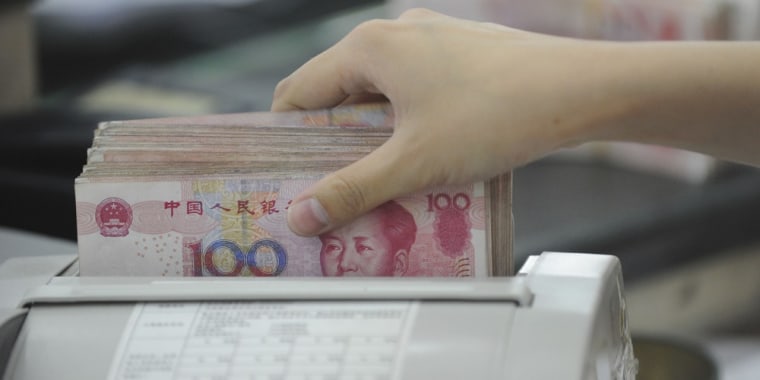The Obama administration announced Friday it will delay a scheduled report on whether China is manipulating its currency to gain trade advantages until after an upcoming meeting of the world's major economies next month.
The Treasury Department said the administration will wait until after President Barack Obama meets with other leaders of the Group of 20 nations in Seoul in early November.
The administration's announcement was certain to disappoint U.S. manufacturing companies, labor unions and lawmakers who contend that China is keeping its currency undervalued to gain trade advantages. It could also damage Obama's struggling Democratic Party ahead of crucial congressional elections on Nov. 2.
Lawmakers and the Obama administration have taken a tougher approach to China on the currency topic in recent weeks as high U.S. unemployment and the weak economic recovery are expected to be big issues on the voters' minds.
The report surveying currency practices of other nations is by law required to be submitted to Congress on Oct. 15 and April 15. However this administration and others have often missed that deadline.
The administration announced the delay hours after saying it was launching an investigation into Chinese trade practices that could keep American workers from gaining high-paying green jobs.
U.S. Trade Representative Ron Kirk announced that the government would look into the United Steelworkers complaint that Chinese businesses are able to sell wind and solar equipment on the international market at a cheaper price because they receive subsidies from the Chinese government. The union said the subsidies are prohibited by global trade rules.
The timing of the investigation could be intended to show lawmakers that the administration is getting tough with China on trade policy while postponing the more delicate currency issue until after next month's midterm elections.
Sen. Charles Schumer, a vocal critic of China's trade practices, welcomed the trade case but said he was disappointed the administration did not issue a report citing China as a currency manipulator.
"An investigation into China's illegal subsidies for clean energy industry is overdue, but it's no substitute for dealing with China's currency manipulation," Schumer, a New York Democrat, said in a statement.
The administration could bring a case against China before the World Trade Organization, if it finds the allegations by the Steelworkers to be true. If the WTO found in America's favor, it would clear the way for the United States to impose penalty sanctions on Chinese imports unless the Chinese government halted the practices.
Schumer is not waiting for that ruling. He vowed to push ahead with his legislation that would impose sanctions on Chinese products unless China moves more quickly to let its currency rise in value against the dollar. The House by an overwhelming margin passed similar legislation last month.
Obama is under pressure to punish China for trade policies that U.S. lawmakers say cost millions of U.S. manufacturing jobs. Many are angry over a politically sensitive U.S. trade deficit with China that has climbed to an all-time monthly high.
The U.S. deficit with China rose 8.2 percent in August to an all-time high of $28 billion, surpassing the record $27.9 billion set in October 2008. So far this year, the U.S. deficit with China, the largest imbalance with any country, is running 20.6 percent above the 2009 pace.
In announcing the delay of the currency report, Treasury noted the meetings on Oct. 22-23 in South Korea that will be attended by Geithner and finance ministers from the other G-20 countries. That group, which represents 85 percent of the global economy, includes traditional economic powers such as the United States and Germany and fast-growing developing countries such as China, Brazil and India.
The G-20 meeting of finance officials will be followed on Nov. 11-12 with meetings of the leaders including Obama and Chinese President Hu Jintao.
